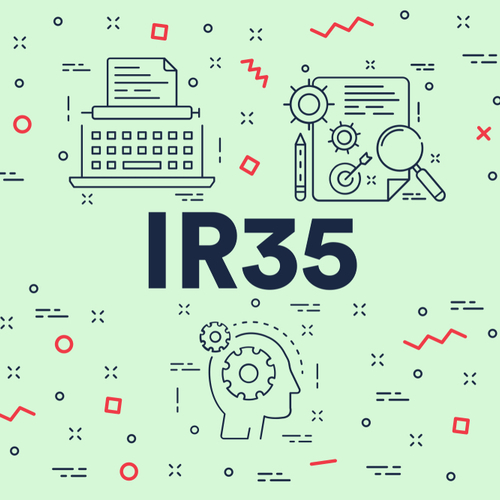Self Assessment and personal tax services for Wimbledon residents
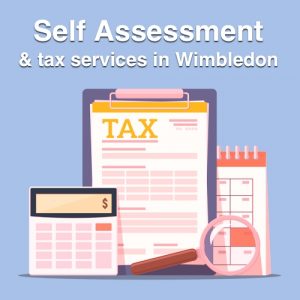
Wimbledon residents can expect quick, accurate and cost-effective Self Assessment and other tax services from Tax Agility.
With good transport links to London and neighbouring boroughs, Wimbledon is an ideal hub for commercial activities. Having a thriving business and strong revenue come naturally the issues of tax. Thankfully, you can turn to Tax Agility, your local Personal Tax accountants in Wimbledon for honest and expert tax advice.
Tax Agility, your local Personal Tax accountants in Wimbledon
Working with a trusted Personal Tax accountant like our team at Tax Agility means you can avoid many common tax mistakes. We also actively look out for the latest allowances and reliefs that you are entitled to claim, so you don’t pay more tax than it is necessary.
Our professional accounting services provide you with:
Self Assessment tax return
If your income is not taxed under PAYE, you may need to file a Self Assessment tax return. Self-employed individuals, partners in a business partnership and high earners (with income over £100k) fall into the category. Trustees, landlords and people with Capital Gains may also need to complete a Self Assessment tax return. Let our ICAEW Chartered Accountants help you with Self Assessment and file on your behalf. With us working by your side, you won’t pay more tax than it is necessary while remain compliant with tax regulations.
Tax planning and advice
Tax planning looks at your income versus tax obligations, as well as using legitimate options to reduce your overall tax bill. Give your local Personal Tax accountant in Wimbledon a call on 020 8108 0090 for honest, trusted tax advice.
Estate and Inheritance Tax planning
A good estate planning can reduce the Inheritance Tax payable by your estate. Talk to us about estate and Inheritance Tax planning today.
Specialist services
From forming a sole proprietorship, selling a business to tax-saving investment options, you can count on us to give honest tax advice.
Why choose Tax Agility
- You receive a responsive and friendly service
- You get a personalised service tailored to your circumstances
- Competitive pricing with no hidden charges
- The convenience of a local Tax Agility office in Wimbledon
- We take care of the tedious information gathering process
- We learn about the changing tax obligations so you don’t have to
- We are professional and welcome your query, be it big or small
- We aim to save you money
“Tax Agility gives me a reliable and cost-effective service for my freelance work” – words from a happy customer.
Call Tax Agility on 020 8108 0090 for all your personal tax matters today.
Personalised tax advice
Everyone’s situation is unique and therefore, you should receive tax advice that is unique to you too. This is why our service focuses on you – you can decide the level of engagement you want and our fees are transparent with no hidden charges.
Visit our Wimbledon Personal Tax Return service page and you may also find these relevant pages useful:
- Personal tax accountants for UK tax returns and tax-saving tips
- All you need to know about Self Assessment tax return
Self Assessment and personal tax services for Richmond residents
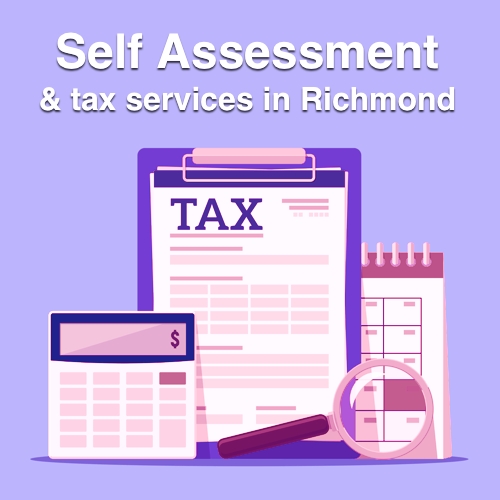
Richmond-upon-Thames residents can expect quick, accurate and cost-effective Self Assessment and other tax services from Tax Agility.
A hard-working borough, Richmond-upon-Thames enjoys a higher employment rate than many other parts of London, according to the ONS data. As you work hard for your money, we work hard to keep it in your pocket.
Our Personal Tax accountants in Richmond-upon-Thames have a strong reputation in helping local residents with their taxes, from Self Assessment tax return, estate planning and Inheritance Tax, to Capital Gains and other tax advice. We offer honest, expert tax services that focus on you – you control how you want to engage us and our fees are transparent without hidden charges.
Tax Agility, your local Personal Tax accountants in Richmond-upon-Thames
Tax regulations, along with your circumstances, change with time. This means allowances and reliefs that applied to you before may not apply now. At the same time, new tax-saving schemes may arise and benefit you. Knowing what you’re entitled to claim and using legitimate options to reduce your tax bills are the jobs of our ICAEW chartered Personal Tax accountants.
Our professional accounting services provide you with:
Self Assessment tax return
Self-employed individuals, partners in a business partnership, high earners (with income over £100k) and anyone whose income is not taxed under PAYE will need to file a Self Assessment tax return. In addition, trustees, landlords and people with Capital Gains may also need to complete a Self Assessment tax return. You can engage us as your agent and let us handle your tax return on your behalf. We will also share tax-saving tips and make use of the appropriate allowances and reliefs so you don’t pay more tax than it is necessary.
Tax advice
Not every income is taxed under PAYE. Income from rental, working on freelance projects, selling products online, buying and selling items of value – they may require you to pay tax separately. Talk to us, your local Personal Tax accountant, if you would like to know if there are legitimate tax-saving options.
Estate and Inheritance Tax planning
A good estate planning can effectively lower the Inheritance Tax payable by your estate, thereby safeguarding your hard-earned assets and allowing your heirs to cherish your legacy.
Specialist services
From forming a sole proprietorship, selling a business to tax-saving investment options, you can count on us to give honest, expert tax advice.
Why choose Tax Agility
At Tax Agility, we don’t believe in creative accounting that will get you in trouble with HMRC. Instead, we keep ourselves updated with the latest tax regulations and legitimate tax-saving options to benefit you and our clients.
Benefits of using our services include:
- You receive a responsive and friendly service
- You get a personalised service tailored to your circumstances
- Competitive pricing with no hidden charges
- The convenience of a local Tax Agility office in Richmond-upon-Thames
- We take care of the tedious information gathering process
- We learn about the changing tax obligations so you don’t have to
- We are professional and welcome your query, be it big or small
- We aim to save you money
“I can rely on Donovan and his team to get my Self Assessment tax return right and save me money,” – words from a happy customer.
Call Tax Agility on 020 8108 0090 for all your personal tax matters today.
Personalised tax advice
Everyone’s situation is unique and therefore, you should receive tax advice that is unique to you too. This is why our service focuses on you – your income, tax obligation, and reliefs and allowances that can reduce your tax bill legitimately.
You can decide how you want to engage us and our fees are transparent with no hidden charges.
Being local to you in Richmond-upon-Thames means you can meet with one of our personal tax professionals if you’d like.
Visit our Richmond-upon-Thames personal tax return service page and the following articles may make a good read:
- Personal tax accountants for UK tax returns and tax-saving tips
- All you need to know about Self Assessment tax return
Personal tax accountants for UK tax returns and tax-saving tips
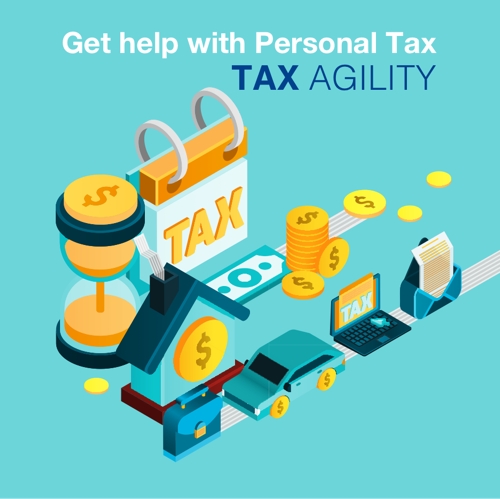
You work hard for your money, so we work hard to keep it in your pocket.
“I want to do the right thing and pay taxes but I don't want to pay more than necessary. Can I trust you to do my taxes and save me from a big headache?” These were the words from a customer who was looking to find a Tax Accountant who can give her honest and expert tax advice. She came to us through a friend’s recommendation and she is now one of my many happy customers.
Knowing what you’re entitled to claim and using legitimate options to reduce your tax bills are the jobs of our Personal Tax accountants who are trusted by thousands of individuals in London, Richmond, Putney and Wimbledon with their taxes.
We specialise in providing honest, expert tax services and have built a strong reputation of excellence over the past few decades. Our professional and friendly service, along with our attention to detail and our mission to keep one’s finances in order, has helped many individuals to spend less time worrying about taxes but more time focusing on growing their personal wealth.
Call our Personal Tax accountants on 020 8108 0090.
Common tax mistakes we can help you to avoid
Tax is a complex subject so it is natural for self-employed individuals, investors, landlords, trustees and many more to have questions. Here are five common tax mistakes which our Personal Tax accountants can help you to avoid.
1. Forgetting to declare all your income
Forgetting to declare all your income – from money generated through your business activities, interests earned on bank accounts, dividends from shares, to extra income from selling products online – is not a risk worth taking. It is a mistake to assume that HMRC can’t find out your extra income – they can, they have teams to investigate individuals perceived to evade taxes.
2. Forgetting to claim tax reliefs
We have a client who continued to pay into a private pension from her last employment through direct debit but did not tell HMRC – until we stepped in to help her claim tax reliefs worth over a thousand pounds. There are many allowances and reliefs, some applicable to you and some don’t, so get the right advice to keep more money in your pocket.
3. Forgetting deadlines
About 11.1 million taxpayers filed a Self Assessment tax return in 2020 but nearly one million people missed the deadline, according to a BBC news report. Anyone with a genuine excuse can avoid fines but in many instances, people simply forget and have to pay penalties. With us working by your side, you will never miss a tax deadline again.
4. Wrongly claiming expenses
Wrongly claiming expenses happen often. It could be a landlord claiming capital expenditure (which can’t be deductible from rental income) or a self-employed individual carelessly claiming tax relief on the duality of purpose expenses, among other scenarios.
5. Not transferring unused allowances
Transferring one’s unused allowances to a spouse sounds easy but many people are not aware of this or simply do not know how to go about doing it.
Apart from the above, there are plenty more specific mistakes, like if you transfer an asset following a divorce, you may have to pay Capital Gains Tax, or not using a trust to manage your assets and safeguard them for your children even if it makes sense to do so, among others. As your circumstances are different from others, it is best to give our Personal Tax accountants a call on 020 8108 0090 or use the contact form to get in touch.
Our Personal Tax services
Self Assessment
Self-employed individuals, partners in a business partnership, high earners with income over £100,000 and anyone whose income is not taxed under PAYE will need to file a Self Assessment tax return. Trustees, landlords and homeowners with Capital Gains may also need to complete a Self Assessment tax return.
Our Personal Tax accountants, based in Richmond, Putney and Wimbledon are here to help with Self Assessment tax returns in the local areas. We are happy to share tax-saving tips and be your tax agent, handling your filing and making sure that applicable allowances and reliefs are used to your benefit.
Capital Gains Tax
Many items of value are subject to Capital Gains Tax when you make a profit from selling them but there are allowances and reliefs available. Our Personal Tax accountants can help you reduce your Capital Gains Tax legitimately by exploring options such as transferring certain assets to your spouse before the sale and choosing the right timing for the sale.
Personal investments
What kind of taxes you pay on investments depend upon the type of investments. For example, you don’t pay Capital Gains Tax on money in your ISA and you get tax reliefs if you invest through Enterprise Investment Scheme (EIS) and Seed Enterprise Investment Scheme (SEIS). Get solid tax advice from our chartered accountants today.
Trust and Inheritance Tax
Death is not a popular subject to be discussed among families and accordingly, many don’t do estate planning. As a result, when death happens, the estate of the deceased has to pay a substantial amount of Inheritance Tax. Our Personal Tax accountants can advise if trust could be used to reduce your Inheritance Tax, as well as discussing other options.
Self-employed tax advice
With a proven track record working with self-employed contractors or freelancers across London, we can offer useful tax-saving tips that help you and your business. As the needs of each person are different, we offer a range of accountancy packages so you can decide how much you want to spend and the right level of engagement. For more information, check out our Contractor Accountants page.
Exit planning
If you’re planning on leaving your business (whether through a merger, acquisition or otherwise), our experienced chartered accountants can help guide you through a range of options, recommending strategic moves that would offer you the greatest financial reward.
Tax investigations
If you are under investigation by HMRC or wish to make voluntary disclosures, rely on our expert knowledge to guide you. We can also negotiate on behalf of you.
Personal Tax planning
Lowering your tax bills legitimately requires effective planning, one that considers your income, your tax liability and what you want to achieve for yourself and your family, and the relevant tax regulations. Talk to us and see how we can help.
Specialist services
Circumstances can change for everyone. Starting a business, getting married, moving overseas, buying and selling houses – each of these circumstances may have an impact on your tax liability. Thankfully, you can rely on our Personal Tax accountants to help when you start a new chapter in life.
The benefits of hiring our Personal Tax accountants
- You receive a responsive and friendly service
- You get a personalised service tailored to your circumstances
- You become tax-efficient and remain compliant with the tax rules
- We offer competitive pricing with no hidden charges
- We learn about the changing tax obligations so you don’t have to
- We are professional and welcome your query, be it big or small
- We aim to save you money
- We look for long-term relationships
- We are ICAEW chartered accountants
Call our Personal Tax accountants on 020 8108 0090.
Alternatively, use our contact form to get in touch.
Relevant pages:
- Personalised tax advice for individuals
- Personal Tax Self Assessment service
- Personal Tax Planning
- Trusts and Inheritance Tax planning
You can also contact our local Personal Tax accountants in Richmond, Putney and Wimbledon, as well as our small business accountants in London.
All you need to know about Self Assessment tax return

Self Assessment is one of the two ways which HMRC uses to collect Income Tax. Find out if Self Assessment applies to you, the important dates, penalties and common questions in this article.
In the UK, HMRC collects Income Tax through PAYE and Self Assessment. PAYE is where your income is taxed at source, meaning the money you receive has already been deducted off tax and National Insurance. Most employees in the UK are taxed under PAYE.
Self Assessment is for people whose income has not been taxed at source. Examples of such income include the money you receive as a sole trader, your rental income, income from a trust, casual freelance earnings, occasional income like selling products on online, to name but a few.
Also, if you were taxed at an incorrect rate or if you want to claim allowances or reliefs, then you may need to file a Self Assessment tax return.
Who needs to file a Self Assessment tax return
Individuals who need to file a Self Assessment tax return include:
- Self-employed individuals, aka sole traders
- A partner in a business partnership
- A company director whose income is not taxed under PAYE
- A trustee who is responsible for reporting and paying tax on behalf of the trust
- An executor or administrator of a deceased’s estate
In addition, you may also need to complete a Self Assessment tax return if:
- You have untaxed income from property rental, investments, other freelance assignments, etc.
- You receive regular income from a trust or settlement
- You receive a gift from a loved one at some point in the seven years before they passed away
- You have an annual income of £100,000 or more before tax
- You have foreign income
- If you get child benefit and your income (or your partner’s income) is over £50,000
- You have capital gains
The list above is not exclusive. There are also other scenarios where you need to file a Self Assessment tax return.
Call our Personal Tax Accountants on 020 8108 0090 for expert Self Assessment advice.
Important deadlines
We will highlight a few important dates below but beware that the dates may be applicable to you during this particular tax year or they may be applicable following the end of the tax year.
31 January
Before midnight on 31 January, one of the followings may be applicable to you:
- File your tax returns online for the previous tax year.
- Pay any tax you owe for the previous tax year.
- If you’re self-employed, pay your first payment on account. The phrase ‘payments on account’ refers to advance payments towards your tax bill.
- If you’re self-employed, pay your balancing payment if you still have tax to pay after you’ve made your payments on account.
- Amend your past tax return when you realise that you have made a mistake.
6 April
6 April marks the beginning of a new tax year in the UK. This is an important date as changes agreed in the Budget and new tax regulations may come into effect.
31 July
If you’re self-employed and you pay your taxes through payments on account, then you know that you need to make two payments a year. The first payment is before midnight on 31 January and the second payment is before midnight on 31 July.
Note: Due to the Coronavirus COVID-19 pandemic, the due date for the second payment on account for 2019/20 is now 31 January 2021 (instead of 31 July 2020).
5 October
If this is your first time submitting a Self Assessment, you must register by 5 October. Upon completing the registration, you will get a Unique Taxpayer Reference number and a code (in the post) which you need to activate your account.
31 October
31 October is the deadline for filing a paper tax return. Increasingly, HMRC wants you to file online but if you choose to continue with a paper tax return, then you will need to download one or request for a paper Self Assessment return.
30 December
If you have incomes taxed under PAYE and you also file your Self Assessment, you can pay your Self Assessment bill through your PAYE tax code if:
- You owe less than £3,000 on your tax bill
- You submitted your paper tax return by 31 October or your online tax return by 30 December
Please note that you can’t pay through your tax code if you don’t have enough PAYE income for HMRC to collect it.
Late filing and the penalties
Unless you have an excuse deemed reasonable by HMRC, filing late will cost you money. Here is an overview of the penalties:
- One day late: £100
- Up to three months late: £100, plus £10 a day (capped at 90 days), so up to a total of £1,000
- Up to six months late: £300 or 5% of the tax due (whichever is higher), plus the penalties above
- Up to 12 months late: Additional £300 or 5% of the tax due (whichever is higher), plus the penalties above
Every year, hundreds of thousands file the Self Assessment late and risk a fine. You can avoid this by getting in touch with our Personal Tax Accountants on 020 8108 0090 now. We can help you plan, prepare and file on behalf of you.
Late tax payment and the penalties
31 January is the deadline for paying any tax you owe for the previous tax year (assuming you have not requested to pay your Self Assessment tax bill through your PAYE tax code). If you miss this deadline, you may be charged interest plus a penalty of 5% of the tax outstanding. Visit this gov.uk page to calculate your estimated penalties if you file your Self Assessment late or pay your Self Assessment tax bill late.
Reasonable excuses
If you’ve missed the deadline for your return or payment, you can appeal against some penalties if you have a reasonable excuse.
According to this gov.uk page, examples of reasonable excuses are:
- Your partner or another close relative died shortly before the tax return or payment deadline
- You had an unexpected stay in hospital that prevented you from managing your tax affairs
- You had a serious or life-threatening illness
- Your computer or software failed just before or while you were preparing your online return
- Service issues with HMRC online services
- A fire, flood or theft prevented you from completing your tax return
- Postal delays that you could not have predicted
- Delays related to a disability you have
You must send your return or payment as soon as possible after your reasonable excuse is resolved.
Mistakes on your Self Assessment tax return
Mistakes can happen and after you’ve filed your Self Assessment tax return, you can make still make a change by signing in to your Government Gateway portal (if you’ve filed it online) or download a new tax return and send HMRC and the corrected pages (if you’ve filed a paper return).
Beware that if HMRC doesn’t think that the mistakes are genuine, you could face a fine. How much fine you will need to pay depends on how HMRC sees the mistake; whether you have made the mistake due to carelessness, you have made it deliberately, or you have made it deliberately and have tried to conceal it.
Also, if HMRC finds the mistake (instead of you) and believes that you have been careless or you have deliberately done so, the penalty is usually more severe than you finding it.
Frequently asked questions about Self Assessment
As Personal Tax accountants with offices in Richmond, Putney, Wimbledon and London, we get many questions pertaining to Self Assessment. Here are a few common questions and their answers.
I’m self-employed and my business has made a loss, do I need to file a Self Assessment?
The answer is yes. In fact, you can carry the loss forward to deduct from any future profits you will make.
I’ve got a full-time job now, do I still need to file a Self Assessment tax return?
If you have a full-time job now and you don’t receive any income from any freelance work, then contact HMRC to let them know that your circumstances have changed. This gov.uk page lists how you can get help.
If you have a full-time job but you still receive untaxed income (like you are still selling products online or renting out a room in your home), then you must continue to file a Self Assessment tax return.
What records do I need to keep?
If you are self-employed, you must keep good records of business income and expenses for at least five years after the 31 January submission deadline of the relevant tax year. For more information, check out this post “Business records checks: how to keep good business records” and scroll to the self-employed section.
If you file Self Assessment but you are not self-employed, you should keep the relevant records for at least 22 months after the end of the tax year.
More questions are likely to arise during preparation and filing, which is why many individuals (particularly self-employed contractors) rely on an experienced Personal Tax Accountant like us to prepare and file Self Assessment.
Tax saving tips
If you are self-employed, you will have a higher tax liability if your business is prosperous and naturally, you may look to lower the liability and this is where professional advice can make a difference.
At Tax Agility, we work with you to look at how you can save some money when filing your Self Assessment tax return. For instance, we may look at:
- If you have claimed for allowable expenses and capital expenditures
- If you have invested in a personal pension scheme
- Other tax saving ideas applicable to you
Tax Agility can help with your Self Assessment Tax Return
At Tax Agility, our team of Personal Tax Accountants has been serving residents in London, Richmond, Putney and Wimbledon with personal tax issues, including Self Assessment.
We can act as your agent and we will deal directly with HMRC on your behalf.
As everyone’s financial situation is unique, we can customise our service to you depending on your needs. For example, we can:
- Calculate the amount of tax owed
- Share tax saving options
- File on your behalf
- Represent you if HMRC asks questions
Our Personal Tax accountants are experienced, competent and we offer professional and friendly advice. Above all, our fees are transparent with no hidden charges. We also provide a no-obligation meeting to understand your case first.
Give us a call on 020 8108 0090. Alternatively, use our online form to arrange a complimentary, no-obligation meeting.
This blog is a general summary. It should not replace professional advice tailored to your specific circumstance.
Changes to Capital Gains Tax on the disposal of residential properties

From 6 April 2020, disposals of certain residential properties must be reported and with any Capital Tax Gains tax due paid within 30 days of completion.
Before 6 April 2020, if you sold a residential property in the UK and made a gain, you would be required to report and pay Capital Gains Tax when you were ready to submit a Self Assessment tax return. As many property owners knew, the length of time between the disposal and the deadline for filing Self Assessment could be a year or even up to 22 months. This meant some owners might have forgotten about the transactions and failed to pay the relevant Capital Gains Tax due many months down the line, leading to penalties.
Accordingly, HMRC has now launched a new regime which brings forward the reporting and payment of Capital Gains Tax on disposals of certain residential properties. In this article, the Tax Accountants at Tax Agility outline the changes and encourage property owners who plan to sell their buy-to-let residential properties across London, Putney, Richmond and in Surrey to come and discuss the implications of this regime and Capital Gains Tax with us.
What are the new rules
In essence, all UK residents who sell a residential property (like a buy-to-let property) and make a gain of more than £12,300 (the tax-free allowance for 2020-21) will need to report to HMRC and pay any Capital Gains Tax due within 30 days of completion. Subsequently, you will also need to disclose the transactions on your Self Assessment tax return for the relevant tax year, usually on 31 January after the end of the tax year for most people.
To be sure that you can report within 30 days, you must have a government gateway account ready, along with information that allows you to calculate the gain. HMRC has confirmed that computations can be attached when you file the report. If you don’t have enough information to compute the gain, then you must give the best available estimates and amend the Capital Gains Tax return within 12 months.
If you make a loss, like you sell the property less than what you have paid for, then you do not need to report to HMRC within 30 days unless the loss is expected to be used against other gains made on other residential property disposals later in the year.
It is also worth noting that this new reporting requirement applies to each taxpayer rather than for each property.
Exceptions
- This new Capital Gains Tax regime excludes no gain/no loss transfers (like transfers of property between spouses and civil partners), charities, pension schemes and companies.
- It also excludes disposals that realise a gain that is relieved to leave no tax liability such as selling of one’s main residence.
- Any gain made that is equal to or less than the Capital Gains Tax annual exempt amount (£12,300 for 2020-21) is also not in the scope.
Penalties
If you don’t report the transactions and pay the Capital Gains Tax due within 30 days, the penalties are:
- £100 initial late filing penalty,
- Further penalty if six months late, which will be 5% of Capital Gains Tax due or £300, whichever is greater
- Interest will also accrue on late payment
Complicated scenarios
Tax is a complicated subject and you are likely to find yourself in a situation where you aren’t quite sure how the rules apply to you. Talk to one of our Tax Accountants if this is the case by calling 020 8108 0090 today. With offices in Central London, Putney, Richmond and in Surrey, we have helped many families and taxpayers by giving them independent and trusted tax advice.
Here are two examples of how we can help pertaining to the changes to Capital Gains Tax from 6 April 2020.
Example 1: Multiple owners on a property
If you and your spouse jointly own a buy-to-let and each of you stands to make a gain of £50,000 after selling it, then each of you must report it individually as this new regime applies to each taxpayer rather than each property, unless the property is transferred first into the sole ownership of a spouse on a no gain/no loss basis.
Example 2: Computing gains
Calculating Capital Gains Tax requires information such as brought forward losses from previous tax years. We can also help to gather information such as length of ownership, base cost, costs of improvements, incidental costs, among others. While losses realised on assets that have not been reported cannot be deduced from the residential property gain during computation, we can help you to include them (and other losses made throughout the year) when completing your Self Assessment tax return, thereby reducing your tax liability.
Tax Agility can help with Capital Gains Tax
At Tax Agility, we believe in providing solid tax advice that complements your investment strategies and saves your hard-earned cash. Make use of our free initial consultation so we can understand your situations and make the appropriate recommendations.
If you will soon be selling your buy-to-let and these new Capital Gains Tax changes are likely to apply to you, give us a call on 020 8108 0090 or contact us via our Online Form to kick-start the conversation today.
You may also like:
This blog is a general summary. It should not replace professional advice tailored to your specific circumstance.
IR35, new changes from on 6 April 2020

News relating to IR35 abound. Read on to see if the latest changes, taking place on 6 April 2020, will impact you.
Back in 2017, the onus to prove one’s self-employed status shifted from the contractors to the company that hires them across the public sector. This April, private companies (medium to large organisations) must also take on the responsibility to determine a contractor’s IR35 status.
While the law will go ahead, the government has announced a 12-month grace period as it acknowledged that ‘shifting responsibility for determining employment status is a major change for employers and other organisations that use contractors and contingent labour’, according to the report published by HMRC.
What does it mean?
From 6 April, medium and large companies must determine the tax status of the freelancers and contractors they employ directly or via an agency. This means companies must set the tax status and deduct income tax and National Insurance contributions from the fees paid.
Most contractors aren’t happy with this arrangement because they can’t set their tax status (but they could before 6 April). Plus they now have to pay tax and National Insurance (like an ordinary employee) but with no access to benefits like paid holiday or sick pay.
It must be noted that IR35 does not apply to small businesses. A company is considered small if two or more of the following conditions are met:
- Annual turnover is less than £10.2 million
- Balance sheet total is less than £5.1 million
- Has less than 50 employees
IR35 is a highly controversial subject and many organisations and freelancers already expected it will cause issues. If you want to know about the new IR35 changes and how they affect your company, give us a call on 020 8108 0090.
Tax guide for Christmas gifts

Non-cash Christmas gifts cost less than £50 an item can be considered as ‘trivial benefits’.
As the calendar year comes to an end and Christmas approaches, many small business owners in the festive spirit enjoy giving a token of appreciation to the team members. But before you go and splash out, here are the tax rules you need to be aware of.
- Cash or vouchers which can be converted to cash are not considered as trivial benefits. They are subject to tax and National Insurance.
- Christmas gifts that are less than £50 per head (inclusive of VAT), not considered as a reward for their work or performance, and not stated in the terms of their contract, can be considered as trivial benefits. In this case, they are exempted from tax and National Insurance.
Christmas gift examples
Some thoughtful Christmas gifts that are below the £50 mark and can be considered as trivial benefits include:
- Something traditional: a bottle of wine or a box of chocolate
- Something more personalised: a scarf, a pair of gloves or a personalised mug
- Something popular like small electrical items, anything from portable power banks for phones to adapters.
What about Christmas bonuses?
HMRC is clear on Christmas bonuses – any cash you give to employees as a Christmas bonus means earnings. This means you have to add the value of the bonus to your employee’s other earnings, pay PAYE tax and also National Insurance through payroll.
What about gifts from a third-party?
It is possible for your employees to receive gifts from a third party. For example, you run a bakery and your employees may receive a gift from a flour manufacturer. The gift can be cash, vouchers, cheques or items. What you have to report to HMRC depends on what kind of third-party reward your employee receives and whether you are involved in arranging the reward.
The rule of thumb is that if the cash or vouchers are involved, the third-party must deduct PAYE from the reward and you must deduct National Insurance on the combined value of the reward and the PAYE tax paid on it by the third party.
For non-cash goods, the third-party must account for the tax due on the reward and pay tax and National Insurance. However, if you are involved in arranging the reward, the third party will pay for the tax due and you are responsible for the National Insurance.
As this can get complicated quickly, the best approach is to talk to your tax accountant.
Tax Agility can handle your taxes
At Tax Agility, our small business accountants can provide tax advice concerning Christmas gifts and trivial benefits to all small business owners in London, Richmond and Putney. You can count on us to provide honest tax advice pertaining to:
- Corporate tax
- VAT
- Employers’ PAYE
- National Insurance
- Business rates
- Income tax (for directors and shareholders)
Give us a call today on 020 8108 0090 or get in touch with us via our contact page to arrange a free, no obligation meeting.
If you enjoyed this article, you might also be interested in:
- Tax rules for staff parties and annual events
- Accounting tips for small business
- Small business: managing rising costs
This post is intended to provide information of general interest about current business issues. It should not replace professional advice tailored to your specific circumstances.
Understanding dividends

When a company makes a profit, it pays dividends to its shareholders.
If you are a contractor or have recently started your own limited company, you have probably heard from other contractors or business owners about taking a low salary and using dividends to make up a portion of your income.
At Tax Agility, our small business accountants work with contractors and small business owners across London. As we are often asked about the advantages of taking dividends from a business’ profit, we aim to discuss dividends in this post.
What are dividends?
Dividends are money paid by a company to its shareholders after it has met its financial obligations (like paying business expenses and taxes). Another way to look at it is that when a company makes a profit, it usually retains a portion of its profit and distributes the rest to its shareholders in the form of dividends.
Why contractors and small business owners like dividends
The main benefits of dividends are:
- Unlike salary, dividends are not subject to National Insurance Contributions (NICs)
- The first £2,000 of dividends are not taxable
- Dividends have a lower tax rate than salaries
For tax year 2019/20, dividend tax rates are:
- 7.5% (up to £37,500)
- 32.5% (£37,501 - £150,000)
- 38.1% (over £150,000)
If you intend to declare dividends, you must hold a board meeting and minute it whenever you make a declaration. Then your accountant will prepare a dividend voucher for each company shareholder stating the net dividend paid.
Prior to the tax year 2016/17, the was something known as a notional 10% tax credit but HMRC has abolished this.
An example of dividend tax
In the tax year 2019/20, you receive a salary income of £8,600 and this is not subject to tax because the income is below the Personal Allowance threshold of £12,500. This also means you still have a balance of £3,900 left to use.
In the same tax year, you receive dividends worth £15,000 and out of this amount, you only need to pay a low 7.5% tax rate on £9,100. This is because:
- £3,900 of your £15,000 dividend income is tax-free since you have this balance from your Personal Allowance (£12,500 Personal Allowance minus £8,600 salary income)
- Another £2,000 of your £15,000 dividend income is also not taxed as you have a £2,000 Dividend Allowance
The upshot of it is you are only required to pay £682.50 tax on your £15,000 dividend income. This low rate is not achievable if you are drawing a salary. You must then declare this dividend income on your Self Assessment tax return in the ‘Dividends’ section.
IR35
If you are a contractor, chances are you already know how confusing IR35 can be. If you are considered a “disguised employee” under IR35, you will face severe tax implications. If IR35 is stressing you out, please set up an appointment with us so we can understand your situation better. Alternatively, our post “What is IR35? A brief guide to the IR35 legislation” may make a good read.
Professional advice on dividend distribution
To speak with a professional to discuss how to successfully distribute dividends to your shareholders and to maximise your take-home pay, contact one of our small business accountants in London today. You can call us on 020 8108 0090 or get in touch with us via our contact page to arrange a complimentary, no-obligation meeting.
If you liked this post, you might also enjoy:
- The complete guide to buying a small business
- The complete guide to business funding
- Small Business: 5 ways to get new customers
- Five ways to improve your company’s cash flow
This post is intended to provide information of general interest about current business/ accounting issues. It should not replace professional advice tailored to your specific circumstances.
Everything you need to know about corporate tax
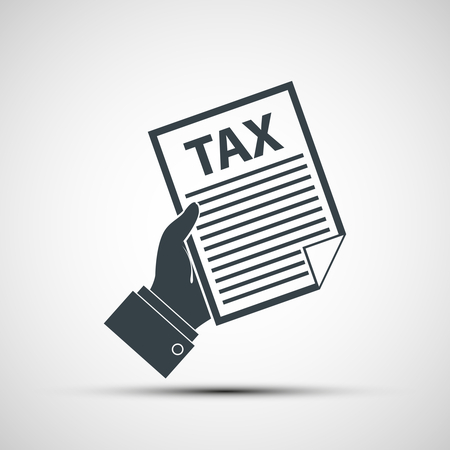
While corporate tax may seem overwhelming, particularly if it’s new to you, it really pays to know how it works and what you can do to lower your tax bill legitimately.
Corporation tax is something that most businesses and organisations need to pay; and the most prevalent of which are limited companies. However, it also applies to foreign companies with UK branches, as well as co-operatives, clubs or other unincorporated associations (such as sports clubs, community groups or voluntary groups).
At Tax Agility, our tax accountants have been working with SMEs across London on tax issues pertaining to small businesses. In this article, we hope to explain corporate tax in an easy-to-understand manner so you can fully understand corporate tax.
What is corporation tax?
One of the best ways to conceptualise corporate tax is that it is just like income tax – except it’s for companies. As soon as your company starts making a profit, you need to start paying corporate tax.
The term profit here encompasses money earned from:
- Doing business (trading profits)
- Investments
- Selling assets and making chargeable gains, these can include land, property, machinery, equipment and shares in the company
If your company is based in the UK, then it pays corporate tax on all of its profits derived from domestic and abroad.
If your company is based elsewhere but has an office here, then it only pays corporate tax on profits derived from its UK activities.
While registered charities are generally exempt from corporate tax, they do pay tax on money that is not used for charitable purposes (aka non-charitable expenditure), as well as on dividends received from UK companies before 6 April 2016, profits from developing land or property and purchases (although special VAT rules apply). Charities also pay business rates on commercial buildings which are a form of tax, although they get an 80% discount.
Corporate tax rates
Corporate tax rates are standardised across all businesses at 19% for 2018-2019 and 17% for 2019-2020. That means that for a business that has an annual profit of £100,000 for 2018-2019, they’ll have to pay £19,000 in corporation tax. From 2019-2020, that figure would be £17,000 in corporation tax from the same annual profit of £100,000.
While there are no plans for this to yet change after these dates, the government has shown a commitment to keeping the rate at 20% or lower. Also, given the current political situation, we may see the rates drop even further to boost growth and drive foreign investment.
When is the corporate tax due?
Corporation tax has to be paid before the company tax return is filled and the exact date will depend upon a company’s corporation tax accountancy period and the size of taxable profits.
For example, your accounting period ends on 31st March and the taxable profits are less than £1.5 million. Accordingly, you must pay your corporate tax nine months and a day after your accounting period ends.
However, it’s worth noting that if your small business has just been started, then you may cross two accounting periods for corporation tax as your accounting period can’t be longer than 12 months. Talk to your accountant and they should be able to help with any corporate tax enquiries. Alternatively, you can call us too.
If your taxable profit is more than £1.5 million, then you must pay corporate tax in instalments electronically.
Lastly, even if your company is loss-making, you still need to declare it with the HMRC – even if there is no corporation tax due.
Registering for corporation tax
When you are first setting up a small business, your accountant generally helps you with the process of registering for corporate tax. If you haven’t worked with an accountant, then you can start the process by visiting the gov.uk website and register within three months of your company beginning to ‘trade’.
The term ‘trade’, and when your company is viewed to have begun trading, is defined as when your business buys, sells, rents property, advertises or employs someone. As soon as your business has performed one of these actions, then the three-month countdown begins, which is why it is imperative that you register for corporate tax right away.
Reducing your bill through allowances and reliefs
Small businesses across the UK can lower their corporate tax bills legitimately by claiming allowances and reliefs. Again, this is something where your tax accountants can assist or call us on 020 8108 0090 if you are in need of a trusted independent small business accountant in London.
Capital allowance allows you to deduct some or all of the value of the assets used in business from your profits before you pay tax. These assets include equipment, machinery, cars, vans and lorries that are used for business.
You can also deduct the following costs (as part of the business costs of your limited company):
- Day-to-day running costs
- Items that you buy and sell
- Interest payments or financial costs for buying assets
In terms of reliefs, they are:
- Research and development (R&D) relief if your company works on innovative tech and/or science projects.
- Creative industries (CITR) relief for film, TV, video game and other creative companies for larger deductions when calculating profit to be taxed.
- Disincorporation relief allows a company to transfer assets to shareholders without a corporation tax charge on assets (often occurring when companies turn from limited companies to partnerships or sole traders).
- Marginal relief is available to companies that have between £300,000 and £1.5 million in profits before certain tax years.
- The Patent Box sees to it that profitable, patented inventions (and some other inventions) are taxed at a lower rate of corporation tax.
- Terminal, capital and property income losses.
- Trading losses.
Please note that anything you or your employees use and get something from must be treated as a benefit and not a relief to be deducted from profits before tax. Only expenses that are ‘wholly and exclusively’ for the purpose of the business can be deducted. In addition, there are some costs that aren’t allowed – such as the entertainment of clients.
Bonus tips
It’s worth mentioning here that to fully take advantage of the corporate tax system, you, the business owner, should pay yourself a salary which will reduce your profits and your corporate tax obligation accordingly.
If you are paying yourself a low salary on purpose and you use dividends to make up the majority of your income, then you would know that dividends are drawn directly from profit and are subject to a different (lower) tax rate than salaries which are drawn before profits. To find out which approach works best for your situation, it is best discussing this with a professional accountant first.
Another thing worth knowing is that if you pay HMRC your tax bill a bit early, you’ll actually get some of it back in the form of interest – meaning you can actually save money being nice to the taxman. The earliest HMRC will pay interest from is six months and 13 days after the start of your accounting period.
When in doubt, get a professional to account
As a business owner, you are juggling multiple tasks and worrying about HMRC deadlines and if you have missed any reliefs should not be your top priority. Instead, your accountant should be working on them for you, helping you to maximise your income and lower your corporate tax bill legitimately.
Talk to Tax Agility today, our team of chartered accountants work with small business owners across London saving them time and money. Our full range of services include:
- Accounting and bookkeeping for small business
- VAT specific to small businesses
- Payroll services
- Management consultancy
- Tax
Contact us today on 020 8108 0090 or get in touch via our contact us page to arrange a complimentary, no obligation meeting.
If you found this interesting, check out:
This post is intended to provide information of general interest about current business/ accounting issues. It should not replace professional advice tailored to your specific circumstances.
We’ve updated our accountants for dentists page

Our team of specialist accountants for dentists are here to help
At Tax Agility, our specialist accountants for dentists in London are passionate about working with General Dental Practices (GDPs), newly qualified associates, consultants and other dental professionals to deliver a range of accounting services, so that they can maintain a healthy financial state. This passion led us to update our accountants for dentists page with comprehensive and sound advice that you can trust.
Before advising you on the next step or compiling a service plan, we start by offering a FREE, no-commitment consultation to understand your unique circumstances. Once we’ve addressed your situation, we will provide a single or combination of our services that will best suit your needs.
These services include:
- A business structure suitable for your current situation (GDPs, locums or other)
- Tax advice to minimise your tax obligations
- Payroll services
- Tax returns
- Management consultancy
- Advice and management of the cloud accounting software Xero
- Ongoing consultations with a member of our team
On our specialist accountants for dentists page, you can find information regarding:
- How our accountants can assist each type of dental professional – newly qualified associates, GDPs, locums, consultants and private dental practice owners
- Tax questions relating to dentists in London
- Making Tax Digital for dentists
Contact Tax Agility today for specialist accountants for dentists
As specialist accountants for dentists in London, we go above and beyond to help you manage your accounting and bookkeeping responsibilities, ensuring that you understand your tax returns and more. Get in touch with one of our specialist accountants for dentists today.
Give us a call on 020 8108 0090 or send us a message via our Contact Form.





